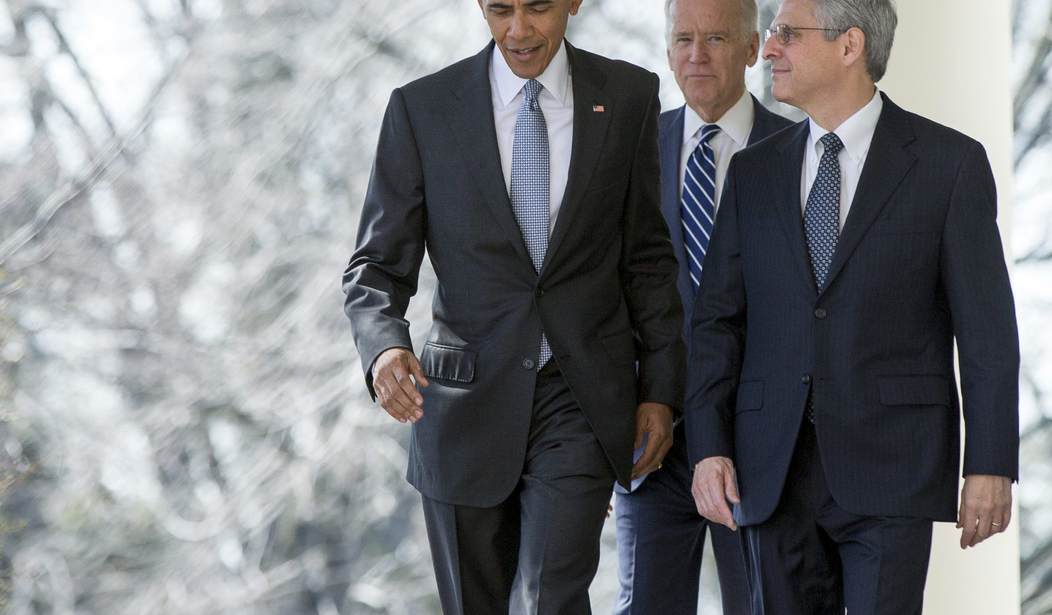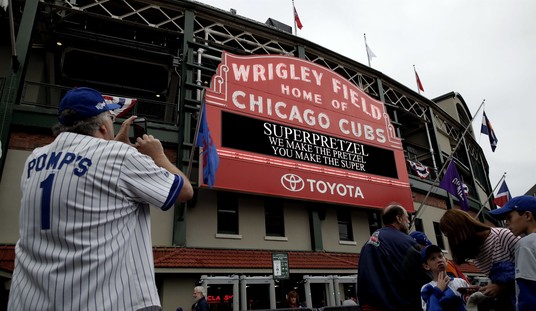Despite President Obama citing the bipartisan congressional support his Supreme Court pick received in the past, Senate Republicans vowed to remain firm on not moving nominee Merrick Garland forward.
Garland, a Harvard Law grad and the chief judge of the United States Court of Appeals for the District of Columbia Circuit since 1997, stood by Obama’s side in the Rose Garden today as the president detailed the judge’s list of accomplishments.
During the confirmation process to the D.C. Circuit, Obama noted, “he earned overwhelming bipartisan praise from senators and legal experts alike.”
“Republican Senator Orrin Hatch, who was then chairman of the Senate Judiciary Committee, supported his nomination. Back then he said, ‘In all honesty, I would like to see one person come to this floor and say one reason why Merrick Garland does not deserve this position.’ He actually accused fellow Senate Republicans of trying to obstruct Merrick’s confirmation of playing politics with judges and he has since said that Judge Garland would be a consensus nominee for the Supreme Court, who would be very well supported by all sides and there would be no question Merrick would be confirmed with bipartisan support,” Obama said.
The president praised his nominee’s “fundamental temperament, his insistence that all views deserve a respectful hearing, his habit, to borrow a phrase from former Justice John Paul Stevens, of understanding before disagreeing and then disagreeing without being disagreeable.”
Obama added that because of late Justice Antonin Scalia’s “outsized role on the court and in American law and the fact that Americans are closely divided on a number of issues before the Court, it is tempting to make this confirmation process simply an extension of our divided politics, the squabbling that’s going on in the news every day.”
“But to go down that path would be wrong,” he said. “It would be a betrayal of our best traditions and a betrayal of the vision of our founding documents.”
Garland will head to Capitol Hill tomorrow, when the Senate leaves on spring break, to begin meeting with lawmakers.
“My earnest hope is that senators take that time to reflect on the importance of this process to our democracy,” Obama said of the two-week recess. “Not what’s expedient, not what’s happening at the moment, what does this mean for our institutions, for our common life? The stakes, the consequences, the seriousness of the job we all swore an oath to do.”
“And when they return, I hope that they’ll act in a bipartisan fashion. I hope they are fair. That’s all. I hope they are fair.”
Sen. Mike Lee (R-Utah) stressed that Obama has the power to nominate a justice, but Congress reserves the right to reject that pick.
“In light of the contentious presidential election already well underway, my colleagues and I on the Judiciary Committee have already given our advice and consent on this issue: we will not have any hearings or votes on President Obama’s pick,” Lee said.
“Any meeting with any nominee put forward by President Obama would only be a waste of the Senate’s time. The Court has very ably dealt with temporary absences in the past and will do so again now.”
Sen. Johnny Isakson (R-Ga.) stressed that “the Constitution gives the responsibility of Supreme Court appointments to two branches of government, not just one.”
“As a senator who has the duty of advice and consent, I believe the American people should have a voice in this process by allowing the next president to select and the next Senate to confirm Justice Scalia’s replacement,” Isakson said.
Senate Judiciary Committee Chairman Chuck Grassley (R-Iowa) said Obama “has exercised his constitutional authority,” and “a majority of the Senate has decided to fulfill its constitutional role of advice and consent by withholding support for the nomination during a presidential election year.”
“It’s also important to remember the type of nominee President Obama said he’s seeking. He says his nominee will arrive at ‘just decisions and fair outcomes’ based on the application of ‘life experience’ to the ‘rapidly changing times.’ The so-called empathy standard is not an appropriate basis for selecting a Supreme Court nominee,” Grassley added.
“…Do we want a court that interprets the law, or do we want a court that acts as an unelected super legislature?”
And Hatch, whose past praise of Merrick will be trumpeted by Dems for months to come, said he stands with the Senate GOP decision to not advance any nominee during election season.
“Doing so will keep what should be a serious confirmation discussion from becoming denigrated by the toxic politics of this election season, and it will give the American people a voice in the direction of our nation’s highest court,” Hatch said. “This approach to the Senate’s advise-and-consent role isn’t about the individual the president has chosen—it’s about the broader principle.”
Senate Majority Leader Harry Reid (D-Nev.) quickly tied Senate GOPs vow to block the nomination to Donald Trump.
“Earlier today, Donald Trump called on Republicans to block this highly-qualified nominee,” Reid said. “Republicans now face a choice between blindly taking their marching orders from Donald Trump, or doing their jobs and providing fair consideration to this highly-qualified nominee.”








Join the conversation as a VIP Member